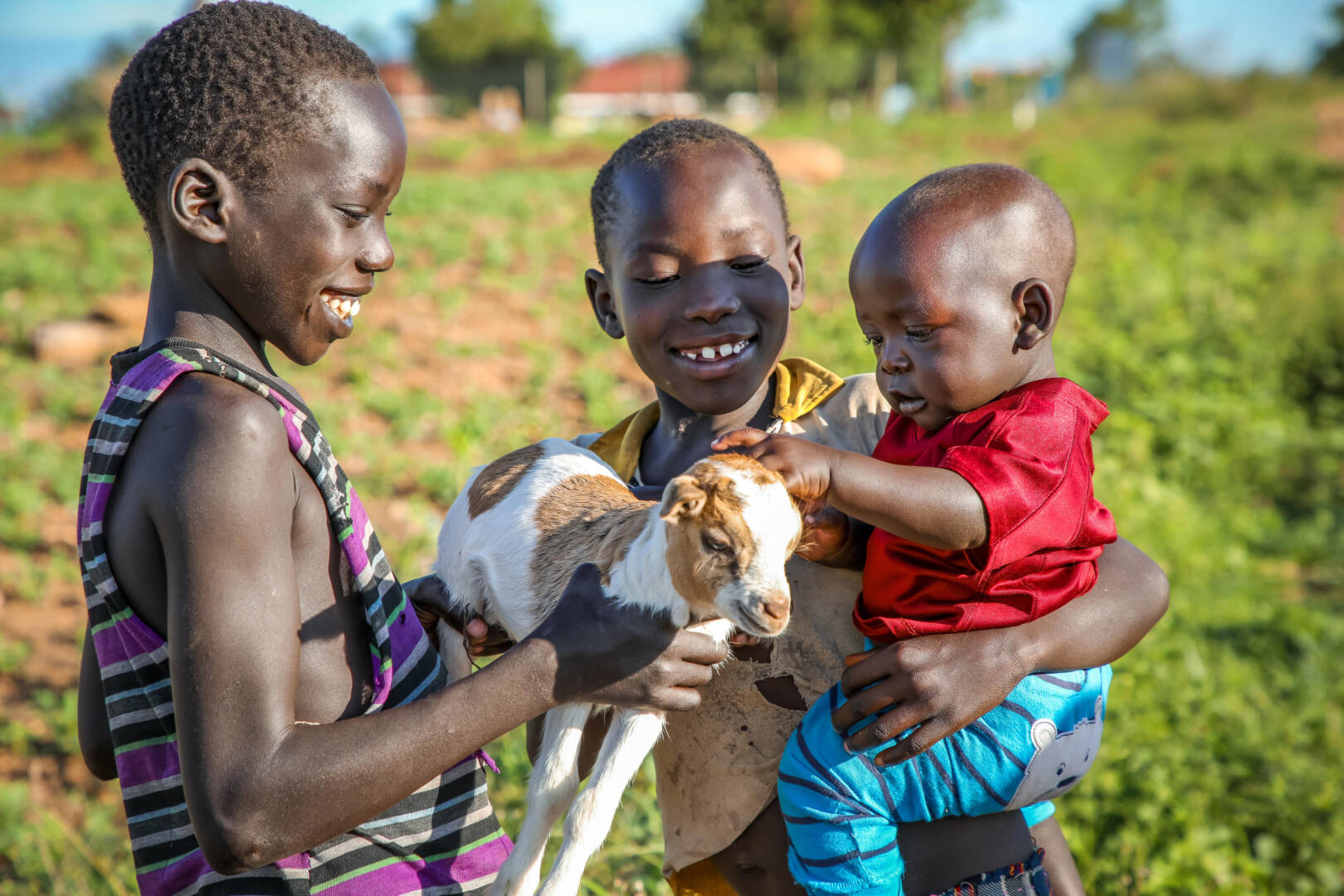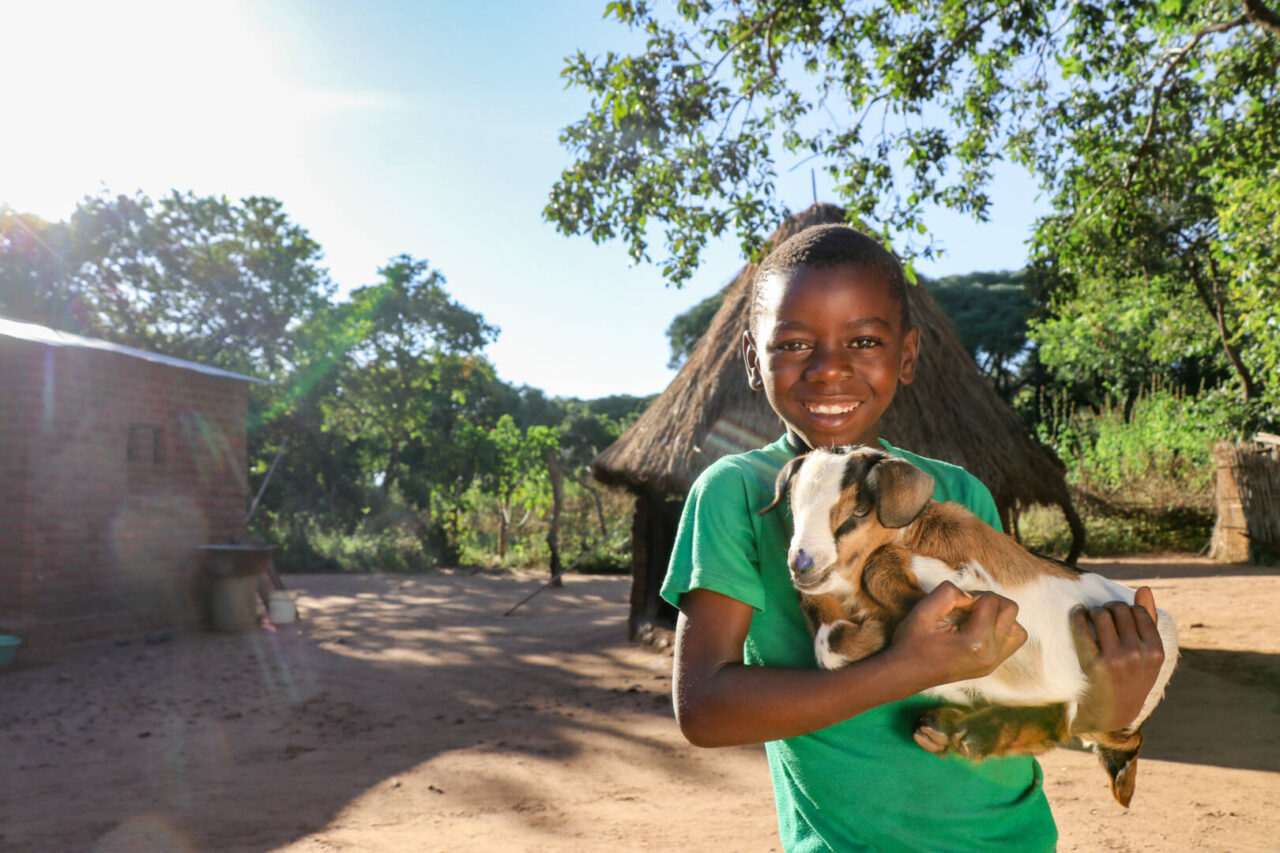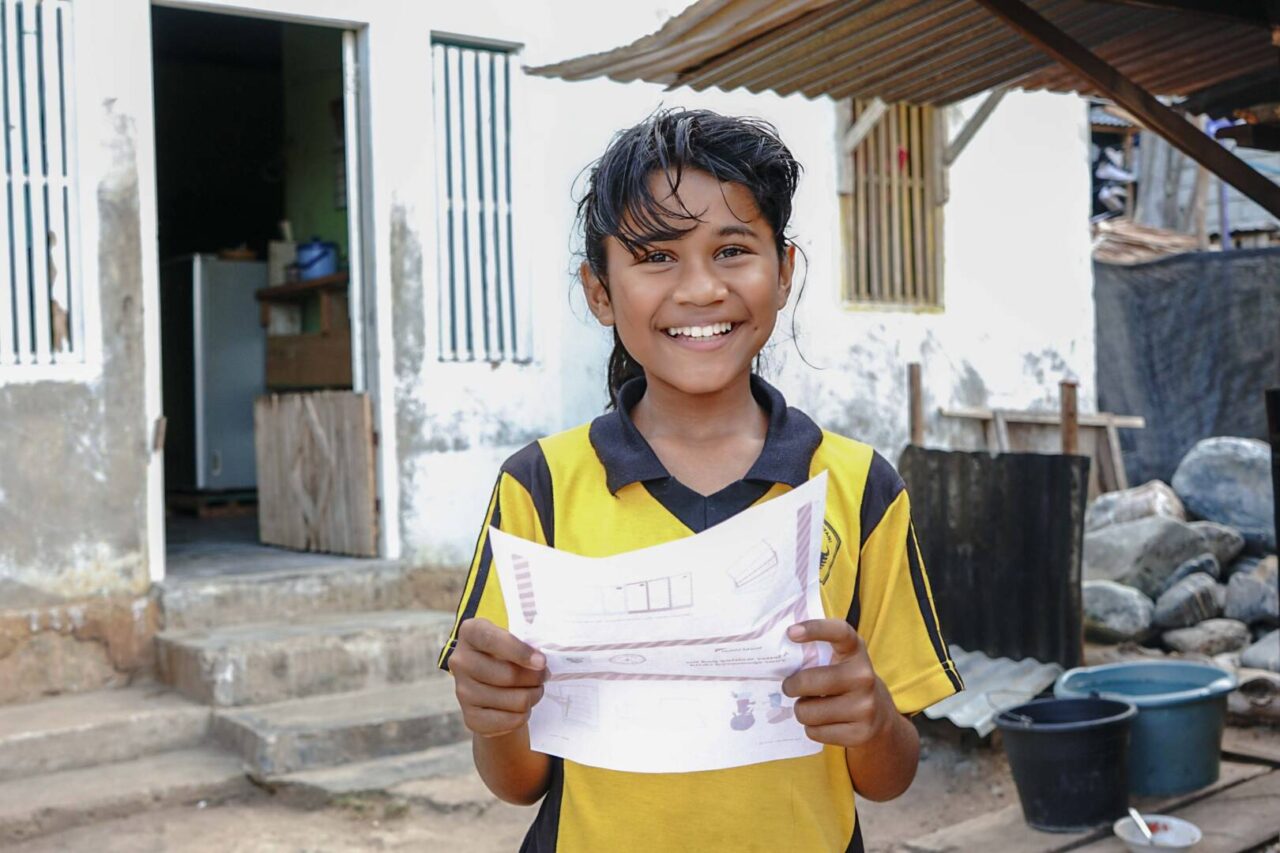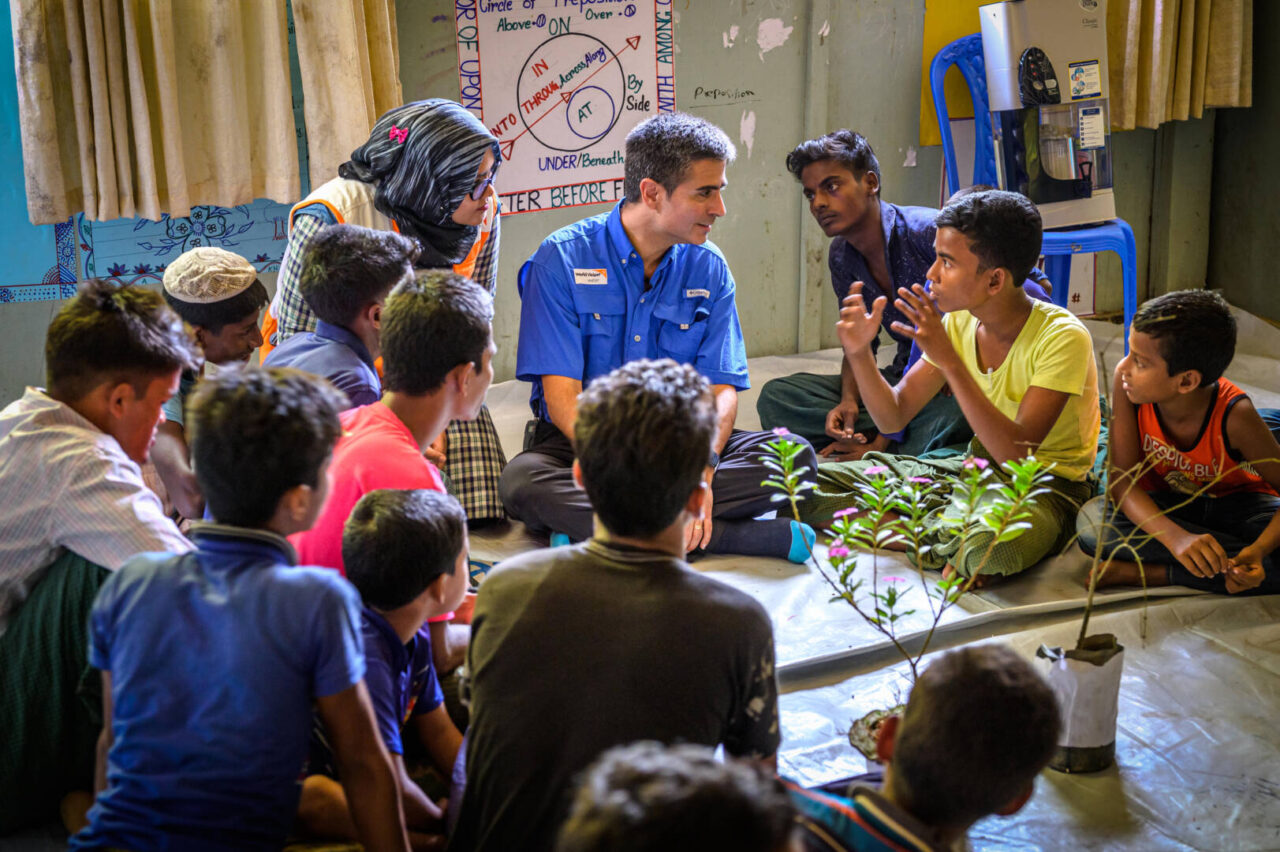In 2018, as war in South Sudan spiraled out of control, 10-year-old Mustafa and his family fled the violence and destruction, leaving their home and crossing the border into Uganda. Mustafa, his parents, and his six siblings were then relocated by the government to Omugo refugee settlement in northern Uganda. Mustafa’s mother, 35-year-old Edina, recalls the desperation as she confronted the bitter reality of starting from zero. “We had over 18 goats and 20 cows, but we lost all of them during the war,” she says.
They now had nothing, and even hope seemed like a distant dream.
World Vision has worked in Omugo refugee settlement since 2017 with programs focused on child protection, resilience and livelihoods, and clean water, sanitation and hygiene. In 2019, with funding from Gift Catalog donors, World Vision distributed two goats and 10 chickens to over 2,500 households in Omugo and Imvepi refugee settlements to help families improve their livelihoods and provide nutritious food for the children. Edina recalls her excitement when they first received their goats.
“We had lost everything in South Sudan,” she says. “I knew that these goats would help us rebuild for the future.”
The family named the nanny goat Iyete, which means “thank you.” Iyete is Mustafa’s favorite goat and really everyone’s — because she’s usually peaceful and calm, and also because of her incredible multiplication capabilities. Iyete has given birth to so many kids that the family now has 17 goats!
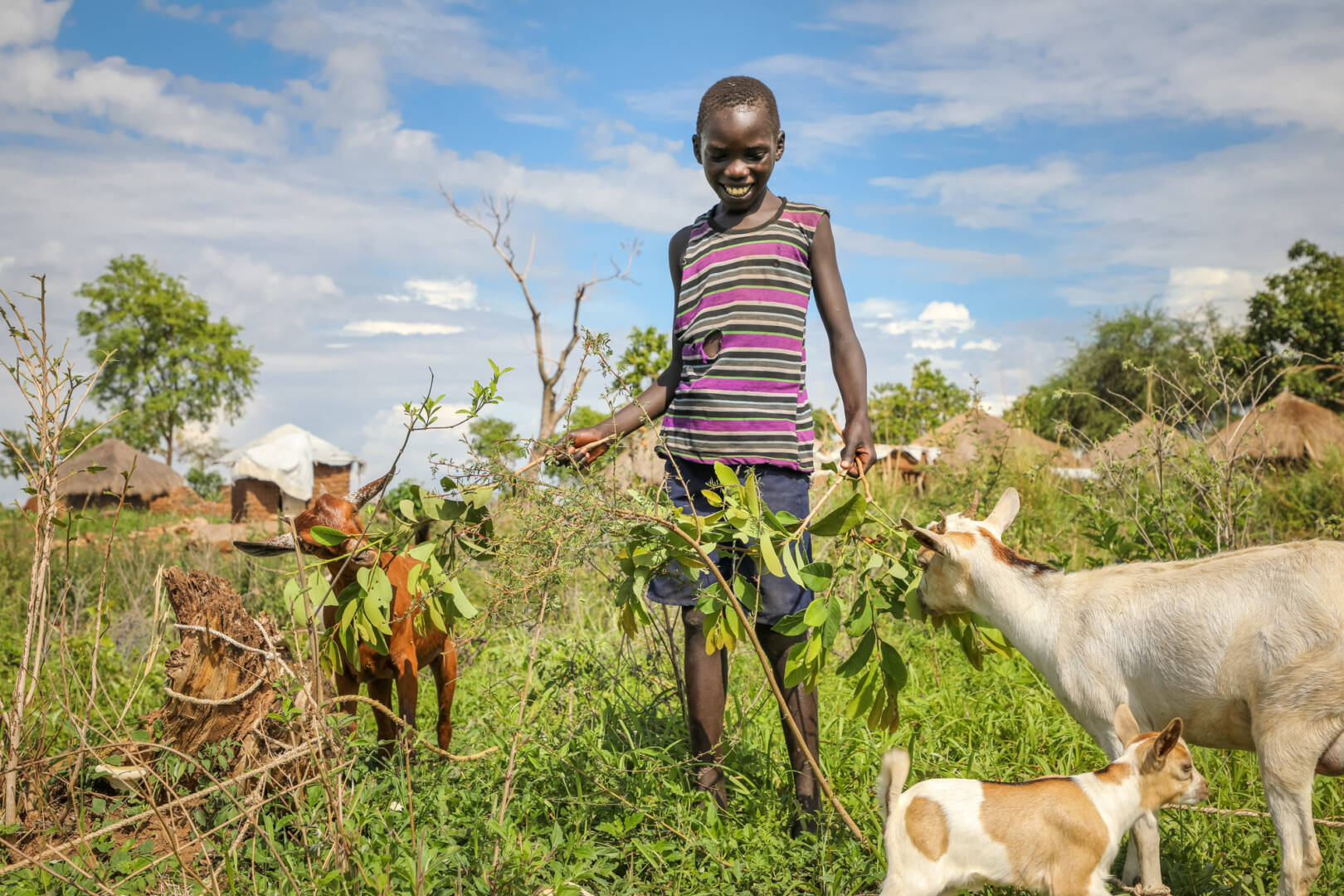
Goats save the family from hunger
Every morning after brushing his teeth, Mustafa unties the goats and leads them to graze on a patch beneath Ucia mountain, the towering hill close to their home. As the goats wander, lost in their “conversations” with the grass, Mustafa runs back home and heads toward his mother’s kitchen, a grass-thatched mud structure that now smells of freshly fried pancakes.
There, Edina busies herself — picking up dough the size of a small fist, flattening it between her palms, then slipping it into a pan of boiling oil. It hisses as it makes contact with the hot liquid. There’s already a steadily growing pile of pancakes in a covered plastic bucket next to her. Mustafa joins his eager siblings, waiting to take a bite of the crunchy delicacy. Edina dips her hand in the bucket, fishes a few pancakes onto a plate, and places it before their delighted eyes.
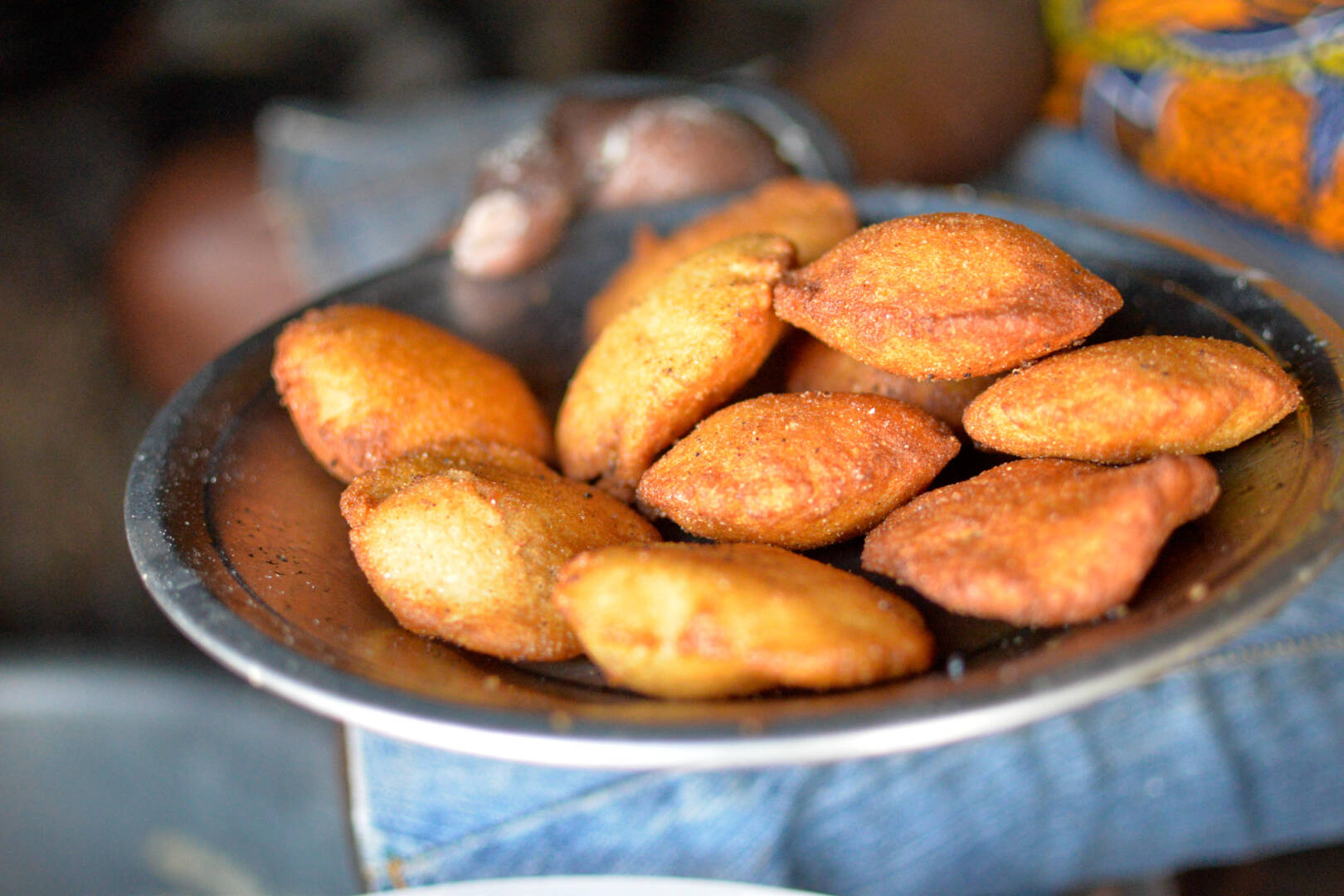
Edina sells her pancakes on the side of the road, making between US$2 and $3 every day. Each week, she saves $1 through a local savings group, which World Vision helped start. Savings groups help people begin to save money and learn how to manage it as well as issue loans to their members. Savings groups provide life-changing support for members with lower incomes so they can grow their businesses and support their families.
“I have been able to … get more stock to boost my business,” Edina says. “As you can see, the children are also eating well.”
Food is a critical need in the refugee settlement. Due to supply shortages, food rations for the refugees were cut by almost half in April 2020 — and the COVID-19 pandemic that started a month earlier only compounded the problem. Food supplies now only come every two months. There is looming hunger in the settlement, but this won’t affect Edina and her family. She can easily sell one of her goats to buy more food. Each time they sell a goat, Mustafa is happy because he gets to eat different foods or receive new clothes. A single goat sells for US$20 to $28, which is enough to buy food that lasts the family several weeks.
“If the goats were not there, and with the current food rationing, the children could easily die of hunger,” says Edina.
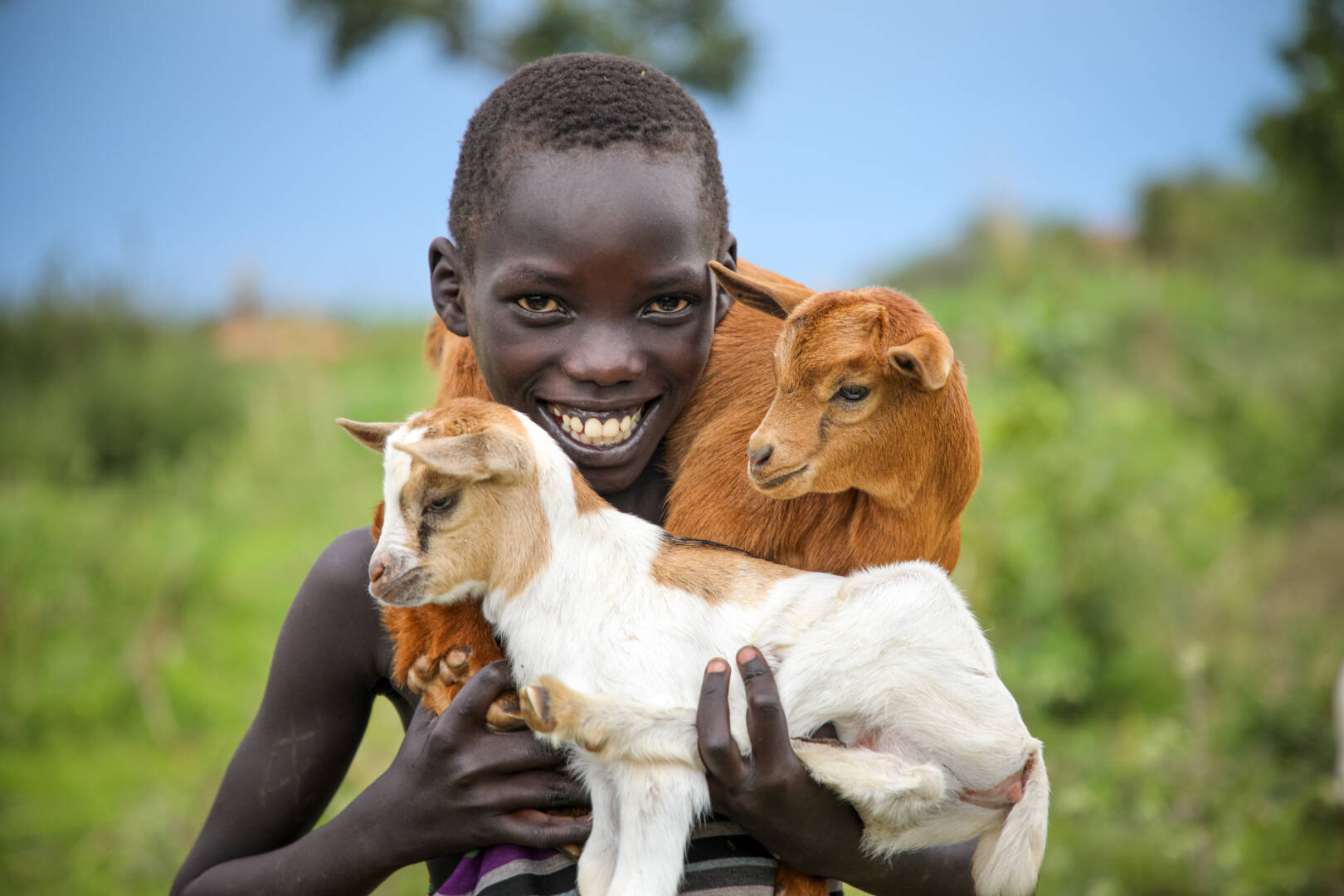
Goats bring comfort
It’s soon midday. The goats need some water to cool down from the sweltering heat. Mustafa picks up a basin while his brother gets a jerrycan. They run to a water point near their home, collect some water, and take it to the goats. Edina hopes that in the future, as the goats continue multiplying, they can sell some to buy cows — to fully regain their lost herd as they rebuild their lives.
Edina often finds solace in prayer. It helps her forget some of the painful things she’s been through. As she reflects on her life, she’s very grateful for the goats from World Vision. “Mustafa and his siblings can go to a better school and have a better future as the goats multiply,” she says.
Before the COVID-19 pandemic, income from the goats helped Edina pay school fees and buy other school supplies like books, pens, and uniforms for her children.
But Mustafa and his siblings are unable to attend school, like the rest of the children in the settlement. He misses spending time with his friends. “I want to go back to school,” says the second grader. “I miss my best friend too.” But in Iyete, he has found a new friend to keep him company.
You + World Vision’s local staff = help, hope, and love to people in nearly 100 countries.
